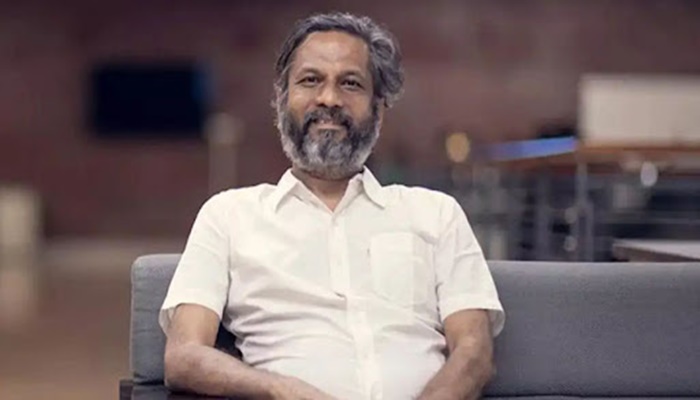It began with a seemingly innocuous reel. An Indian professional, now based in the Netherlands, sipped coffee on a canal-side bench, reflecting on their 35-hour workweek. Thousands of views, comments, and shares later, the ripple effect was undeniable. A LinkedIn post from another Indian expat in Sweden detailed guilt-free vacations encouraged by her employer, sparking a storm of reactions. These snapshots of life abroad are no longer idle daydreams—they are fuelling an awakening among India’s workforce.
Across the country’s urban and semi-urban hubs, millennials and Gen Z professionals are asking hard questions. Why does productivity in India equate to presenteeism? Why are work-life boundaries still blurry? And why does well-being remain an aspiration rather than a norm? What began as social-media envy is now a full-blown desire for change.
The envy directed at Scandinavian and Western work cultures is no longer quiet musing—it’s daily conversation, shared and amplified across social platforms.
The social media spark
Varadarajan S (Raja), former CHRO, Vistara Airlines, calls it the “social media spark.” Platforms such as LinkedIn and Instagram have become global windows into how work can—and should—look. “What we are seeing now is the fallout of sustained visibility,” he observes. “When you repeatedly see your peers abroad enjoying shorter work weeks, open hierarchies and meaningful autonomy, it changes your definition of success.”
The contrast is jarring. Countries such as Sweden and Germany offer structured flexibility, mandatory holidays, remote options and evaluate employees on outcomes. India Inc. remains stuck in legacy behaviours: glorifying overtime, stigmatising leave and equating leadership with control.
“The problem is systemic,” Raja explains. “Productivity here is often about optics. If you’re online till midnight, you’re seen as dedicated. If you ask for time off, you’re not ‘hungry enough.’ That mindset is becoming alien to young professionals who now know there’s another way.”
A 2023 ADP Research Institute study revealed that 62 per cent of Indian workers feel overworked—significantly higher than the global average. Raja warns: “This gap between what employees now want and what companies continue to offer will either lead to transformation or talent drain.”
Four forces of change
Shailesh Singh, CHRO, Max Life Insurance, offers a more nuanced analysis through four lenses. First, he notes the historical evolution gap. “Western countries gained independence long before us. They’ve had more time to institutionalise equality, humane values and progressive policies. In India, we are still catching up.”
Second is prosperity’s impact. Better education, generational wealth and increased access mean younger workers no longer feel beholden to outdated norms. “Earlier, we had fewer choices. Today’s talent is not afraid to say no to transfers to remote locations or toxic managers. They have options,” Singh explains.
Third comes cultural transformation. Indian professionals are finally moving away from delayed gratification—saving joy for retirement or festivals—to living in the present. “Why wait for happiness? Why endure work-related misery when the world is showing you it’s not necessary?” Singh asks.
The fourth factor is technology’s acceleration effect. “We’re living in a fast-forwarded evolution. Earlier, workplace changes took decades. Now, social media makes it global and instantaneous. What starts as a trend in Amsterdam becomes an expectation in Ahmedabad.”
Singh believes change is inevitable: “The scarcity of talent is real. Indian employers can no longer dictate; they must compete. Companies that evolve will attract the best. The rest will fall behind.”
The reality check
Rajesh Jain, CHRO, Welspun World, provides necessary grounding. Whilst agreeing that foreign workplace norms are more humane and effective, he cautions against simplistic comparisons.
“Let’s not forget,” he says, “Europe and the US have already transitioned from labour-intensive industries to knowledge and service economies. Their current models are built for high-value, low-volume work.” India still hosts large-scale labour-heavy operations that cannot easily absorb the cost of high flexibility.
“The kind of work we do is different, and if we suddenly mimic Western models, our cost structures will collapse,” Jain warns. Many Indian companies still chase short-term returns, making long-term investment in employee well-being a tough sell.
Yet Jain sees gradual shift occurring. “Employees are demanding better. Younger leaders will be more empathetic because they themselves want these changes. Systemic transformation, however, will take time. It’s a generational shift, not a quarterly goal.”
Indian companies are transitioning “from compliance-driven HR to experience-driven workplaces,” he notes. The momentum is building, and eventually, culture will follow.
Signs of transformation
The seeds of change are already sprouting. Hybrid work models are becoming mainstream at companies such as TCS and Infosys. Mental health policies are being institutionalised, and startups are experimenting with four-day work weeks. But as Raja notes, these remain “a minority.”
The systemic model—steered by first-generation founders, interpreted by Gen X and Y managers, and executed by millennials and Gen Z employees—creates generational mismatch. Yet demand is unmistakable. Employees are watching, comparing and questioning. They’re no longer afraid to walk away from toxic loyalty and hustle culture, instead seeking workplaces that respect boundaries and reward outcomes over presence.
The pace of change remains debated. Jain believes it will be slow: “Eventually, when the next generation comes to the helm, they themselves will demand this change.” Singh is more bullish: “There’s a scarcity of quality talent. Workplaces will have to compete to retain it. Those who evolve will win.”
In this collision of old and new, social media has become a mirror, showing Indian employees what could be and making companies aware of what must change. The question is no longer whether India Inc. will transform, but how quickly and who will lead the way.
In a world where dignity at work is becoming non-negotiable, the choice for Indian employers is stark: humanise, or be left behind.




















